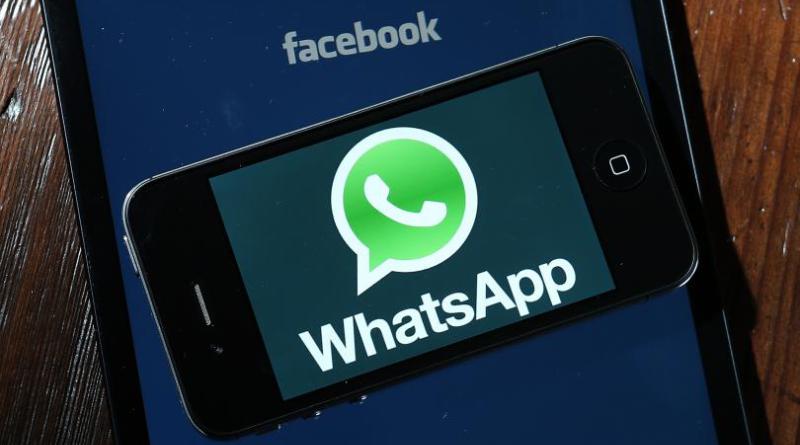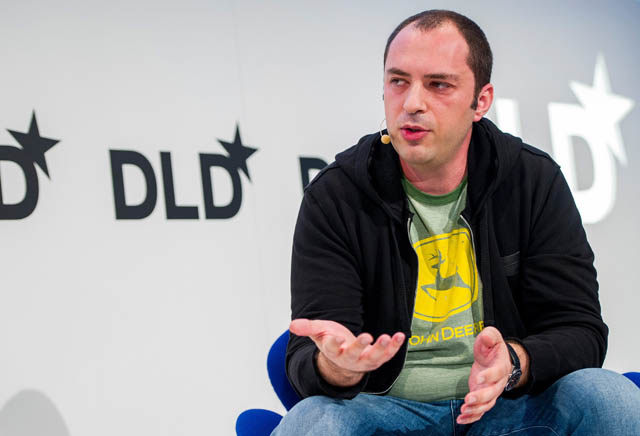WhatsApp has become the first major messaging provider to offer full end-to-end encryption to all users. This means that all data, messages, photos, phone calls, videos and photo calls sent through WhatsApp’s latest version will be automatically encrypted.

If the system works as advertised the only people who will be able to read WhatsApp messages will be the sender and the recipient. Among other things this will make it possible to keep a group chat completely encrypted. That will make WhatsApp of more use to business and make it easier to use the service as a data storage solution.
How to Take Advantage of WhatsApp’s End-to-End Encryption
“If you’re using the latest version of WhatsApp, you don’t have to do a thing to encrypt your messages: end-to-end encryption is on by default and all the time,” a WhatsApp blog post announced. This means all you have to do to send encrypted messages is to download and install the latest version of WhatsApp .
The encryption could work on a wide variety of gadgets including Android devices, iPhones, Windows Phones, BlackBerry units and even old-fashioned Nokia flip phones, Wired reported. If your device already works with WhatsApp it will work with the encryption.
Most importantly the encryption and the latest version of WhatsApp are free. The service is essentially a gift to the world from WhatsApp’s creators and their boss Facebook CEO Mark Zuckerberg.
WhatsApp’s Gift to the World
WhatsApp founders Jan Koum and Brian Acton made the announcement in a blog post dated April 5. The post reads as if it was written by Koum himself who also serves as WhatsApp’s CEO.

“The desire to protect people’s private communication is one of the core beliefs we have at WhatsApp, and for me, it’s personal,” the WhatsApp blog states. “I grew up in the USSR during communist rule and the fact that people couldn’t speak freely is one of the reasons my family moved to the United States.”
Koum spent his childhood in the Ukraine when it was still part of the USSR. He came to the United States with his mother when the family was seeking freedom.
The two are working with a well-known encryption expert who calls himself Moxie Marlinspike, Wired reported. Like Koum, Marlinspike, the head of Open Whisper systems, is an outspoken advocate of encryption.
The Risk WhatsApp is Taking
Both Facebook and WhatsApp are taking a huge risk by offering end-to-end encryption. Encrypted communication is increasingly under attack by law enforcement and others.
Last year the British government tried to ban WhatsApp in the United Kingdom because officials thought it was a security threat. More recently Apple was severely criticized for refusing to help the FBI crack an iPhone supposedly used by one of the terrorists behind the San Bernardino massacre.
The US government went to court and tried to use an old law to force Apple to unlock the device. Apple and its CEO Tim Cook were also attacked by a number of politicians including presidential candidate Donald Trump who threatened to organize a boycott of the company.

WhatsApp is taking an even greater risk than Apple did because it will have no way to unlock its encryption, Wired reported . The company would not be able to crack the encryption even if it law enforcement served it with a warrant ordering such an action.
In fact, the system is supposedly so tight that WhatsApp’s own employees cannot read the messages, a Wired article indicates. This will make it harder but not necessarily impossible for hackers and spies to read WhatsApp messages.
The service could obviously be facing serious political and legal consequences if criminals or terrorists were to use WhatsApp for communications. It could also run afoul of some governments if WhatsApp was used to organize protests and other forms of political activities.
Facebook could be served with warrants or court orders and possibly be banned in some countries if it refuses to decrypt messages. WhatsApp could also be thrown off of some telecoms in parts of the world phone companies provide WhatsApp free to all users.
Enhancing WhatsApp’s Value
A desire to protect privacy is not the only motivation at WhatsApp or Facebook, end-to-end encryption will increase the app’s appeal. Many people around the world want encryption but until only wealthy or middle class people in certain countries have been able to afford it.

Photo: Moxie Marlinspike
By offering end-to-end encryption WhatsApp provides a feature other messaging services lack. It also makes the service far more valuable for ecommerce, financial transactions and other businesses by providing an extra level of protection and security for sensitive data.
The next big use of social messaging services will be to facilitate ecommerce including electronic payment and communications between customers and businesses. Zuckerberg himself already admitted this in a message he sent out when WhatsApp achieved the milestone of acquiring one billion users in February.
“Next, we’re going to work to connect more people around the world and make it easier to communicate with businesses,” Zuckerberg wrote on his Facebook page on February 1.
Connecting the World for Ecommerce
End-to-end encryption brings that goal closer to reality by reducing one of the major objections to social media commerce the vulnerability to data theft. Zuckerberg and company are hoping that by increasing security they’ll make people more likely to send sensitive data and money over WhatsApp.
A major use for WhatsApp would be for people to transfer money to friends or relatives in other countries. Another would be to do business with companies in other nations, for example; a game designer in India could use WhatsApp to distribute and sell his games to people in the United States.
The real goal at Facebook and WhatsApp appears to be to create a global ecommerce platform that everybody in the world will have access to. Zuckerberg hopes to be able to facilitate commerce in much the same way that WhatsApp is facilitating communication.
End-to-end to encryption is one of the most important steps towards achieving that goal. This means that WhatsApp could become one of the most disruptive solutions in history and make Zuckerberg, Koum and Acton among the influential people in the world.
